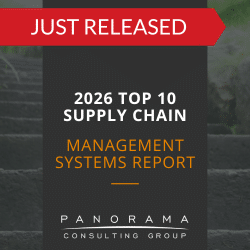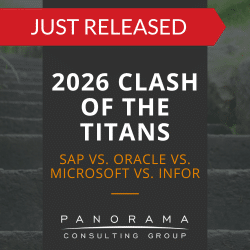Enterprise resource planning (ERP) systems are complex, integrated software solutions that manage a wide range of business processes within an organization. Due to their complexity, ERP implementations can encounter numerous issues, leading to disputes over functionality, compliance, or project management. In legal settings, these disputes often require specialized knowledge to unravel technical details, which is where expert witnesses become invaluable.
An expert witness is a professional with specialized knowledge or expertise in a particular area who is called upon to provide their opinion in legal cases. In ERP-related software litigation, expert witnesses can clarify technical issues, assess compliance with contractual obligations, and evaluate project management practices, helping the court understand intricate details that could be pivotal to the case outcome.
Contemplating litigation?
We have multiple software expert witnesses available for provision of reports, depositions, and testimonies.
Identifying the Need for an Expert Witness
The need for an expert witness in ERP litigation arises in various scenarios. These include disputes over the ERP system’s functionality, allegations of non-compliance with contractual agreements, and claims of project mismanagement failure. Each of these issues requires in-depth technical analysis and industry-specific knowledge, which expert witnesses can provide.
For instance, if a business alleges that its ERP system does not perform as promised, a software expert witness can evaluate the software’s functionality against the contractual specifications. Similarly, in cases where a client claims that an ERP implementation project was mismanaged, an expert witness can review project management practices to identify deviations from industry standards.
Determining the need for an expert witness early in the case planning stage is crucial. Early identification allows sufficient time for the expert to review all relevant documentation, understand the case intricacies, and prepare a comprehensive, well-founded testimony.
Selecting the Right Expert
Choosing the right ERP expert witness is a critical step in leveraging their testimony effectively. The selection process should focus on several key criteria:
1. Technical Expertise: The expert should have a deep understanding of ERP systems, including both the software and the implementation processes. Expert witnesses (like our independent team of software experts) should have technical proficiency in addressing issues such as ERP failures, misrepresentation of “off-the-shelf” software capabilities, and operational disruptions or losses related to ERP systems. This must also include proficiency in industry best practices and current trends.
2. Experience in Legal Testimony: Expert witnesses must have experience providing legal testimony. They should be familiar with courtroom procedures and able to present their findings clearly and confidently under cross-examination.
3. Verifiable Credentials: It’s important to verify the expert’s credentials, including their educational background, professional certifications, and previous work experience. Checking references and reviewing past case involvement can provide insights into their reliability and credibility.
4. Communication Skills: The ability to explain complex technical information in a clear, understandable manner is crucial. The expert must be able to break down intricate ERP-related issues so that judges, juries, and attorneys without technical backgrounds can comprehend them. When selecting an expert, legal teams should conduct thorough interviews and request examples of past testimonies or reports to assess the expert’s ability to articulate their findings effectively.
Preparation and Briefing
Proper preparation and briefing of the expert witness are essential to ensure their testimony aligns with the case strategy. Start by providing the expert with comprehensive documentation, including project plans, contracts, correspondence, and other relevant materials to help them understand the full context and specifics of the dispute.
Then, thoroughly brief the expert on the case background, key issues, and legal arguments, explaining the roles of different parties involved, the specific claims being made, and the applicable legal standards.
Additionally, ensure the expert has unrestricted access to all necessary information and resources, such as direct access to the ERP system in question, interviews with key personnel, or additional supporting documentation. Effective preparation equips the expert with the knowledge they need and helps build a coherent and compelling narrative that supports the legal arguments.
Clarifying Roles and Expectations
Clarifying the expert witness’s roles and expectations from the outset is important to avoid misunderstandings and ensure smooth collaboration. This includes defining the specific aspects of the case the expert will address and the scope of their testimony.
For example, an expert might be tasked with evaluating the technical conformity of the ERP system, assessing compliance with industry standards, or reviewing the adequacy of project management practices. Setting clear expectations for the expert’s deliverables, such as written reports or oral testimony, helps prevent conflicts and ensures that their work aligns with the overall case strategy.
Regular communication between the legal team and the expert witness is crucial to maintaining alignment and promptly addressing any issues that may arise.
Effective Testimony Techniques
The effectiveness of a software expert witness’s testimony can significantly influence the outcome of an ERP system dispute. Key techniques to ensure impactful testimony include:
• Clarity and Objectivity: The expert should present their findings in a clear, objective manner, avoiding technical jargon that might confuse the court. Their testimony should focus on factual information and unbiased opinions based on their expertise.
• Relevance: Ensure that the expert’s testimony is directly relevant to the case issues. This involves highlighting key points that support the legal arguments and addressing any specific questions posed by the court.
• Preparation for Cross-Examination: Preparing the expert for cross-examination is critical. This includes familiarizing them with potential challenges to their findings and coaching them on how to handle aggressive questioning while maintaining composure and credibility.
By focusing on these techniques, legal teams can help their expert witnesses deliver testimony that is both persuasive and understandable.
Using Expert Reports and Statements
Expert witnesses provide valuable insights not only through oral testimony but also through written reports and statements. To leverage these documents effectively, ensure the expert’s written reports are comprehensive and well-structured, clearly outlining their findings, methodologies, and the basis for their opinions. This clarity helps the court understand the expert’s conclusions and the rationale behind them.
The reports and statements should adhere to legal standards and guidelines, including proper formatting, language, and the inclusion of all necessary disclosures. Compliance with these standards adds credibility to the documents and the expert’s testimony.
Additionally, written reports should be used as key evidence during the trial, highlighting the most compelling sections during oral arguments and cross-examinations to reinforce the expert’s points.
Ethical Considerations
Engaging expert witnesses involves several ethical considerations that must be addressed to maintain integrity and credibility in legal proceedings. Expert witnesses must remain impartial, providing unbiased opinions based on their expertise, as any perceived bias can undermine the credibility of their testimony and the case as a whole.
It is also crucial to ensure that the expert witness has no conflicts of interest that could affect their impartiality, including financial interests or prior relationships with any parties involved in the dispute. Experts should be transparent about the limits of their knowledge and honest about the strengths and weaknesses of their findings, as overstating expertise or findings can damage both their credibility and the case.
Evaluating Impact
The impact of an expert witness’s testimony on the outcome of an ERP system dispute can be significant. It’s important to evaluate this impact to refine future strategies.
1. Case Outcomes: Analyze the outcome of cases involving expert witnesses to assess the effectiveness of their testimony. This includes reviewing verdicts, settlements, and any feedback from judges or juries.
2. Post-Trial Feedback: Gather feedback from the legal team and the expert witness after the trial. This can provide valuable insights into what worked well and what could be improved in future cases.
3. Continuous Improvement: Use the insights gained from evaluations to refine the selection, preparation, and utilization of expert witnesses. Continuous improvement ensures that expert testimony remains a powerful tool in ERP-related litigation.
Maximizing the Value of Expert Witness Testimony
Utilizing expert witnesses in ERP system disputes requires careful selection, thorough preparation, and clear communication.
Our team of experienced ERP expert witnesses can provide invaluable insights and guidance, helping you navigate the intricacies of ERP litigation and achieve favorable outcomes. For more information, read our software expert case study.
Need to speak with a software expert witness? Schedule a free consultation below to discuss the merits of your case.














